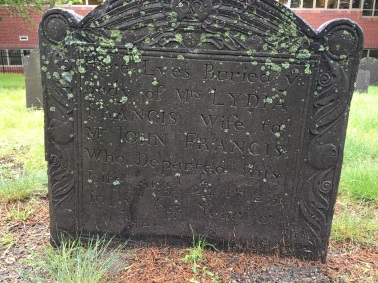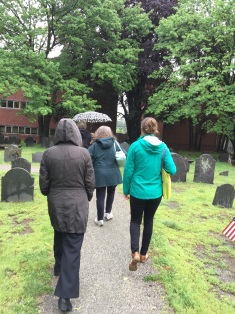CFP: Lydia Maria Child Society
American Literature Association Conference in Boston, MA
23–26 May 2019 at the Westin Copley Place
(URL: https://americanliteratureassociation.org/ala-conferences/ala-annual-conference/)
The Lydia Maria Child Society welcomes proposals for a panel co-organized with the Louisa May Alcott Society and for a social-justice pedagogy roundtable!
Notorious Women, Sensational Texts: The Lives, Writings, and Reforms of Louisa May Alcott and Lydia Maria Child
Organized jointly by the Lydia Maria Child and Louisa May Alcott Societies, this session will examine the lives, writings, and reforms of two enormously popular and prolific nineteenth-century women writers.
Child founded the nation’s first children’s magazine, The Juvenile Miscellany, which she edited from 1826 – 1834, a generation ahead of Alcott’s bestselling books for young people. Child’s conduct manuals, such as The Frugal Housewife, enjoyed wide attention as well. Championing disenfranchised peoples, however, triggered critical backlash. At the age of twenty-two, Child portrayed a marriage between a white woman and a Native American man in her first novel, Hobomok (1824), an audacious choice that reviewers largely disparaged (the book’s poor sales left her deeply in debt). Yet her career suffered its most devastating setback after she published An Appeal in Favor of That Class of Americans Called Africans (1833), the first complete history of slavery by an American writer. Here Child calls for the immediate emancipation of US slaves, a radical stance that she shared with infamous abolitionist William Lloyd Garrison. Although Child wrote and edited until she died, her career never recovered from public reaction to her political views. Undeterred, she tirelessly advocated social reforms in writings such as Letters from New York (beginning in 1841) and A Romance of the Republic (1867).
Writing a generation later, Louisa May Alcott divided her authorial time between books for children, which paid handsomely, and the lurid, anonymously authored fiction that she preferred. In these sensational stories and novels, Alcott (writing as A. M. Barnard) spun tales like Beneath the Mask and “Pauline’s Passion and Punishment,” in which notorious women take revenge on the men who have wronged them and often claim control over their own lives. Like Child, Alcott was an outspoken advocate for antislavery and women’s rights, with poems, essays, and fiction depicting unsung social reformers as the nation’s true heroes. In Moods (1864), for example, Alcott deliberately challenges notions of the conventional marriage plot, just as Child does with a controversial marriage in Hobomok.
We seek abstracts that consider literary, historical, and biographical connections across the lives and literary outputs of Child and Alcott. What kind of role model did Alcott find in fellow Bostonian Lydia Maria Child? Is Alcott’s choice to mask the women in her sensational fiction a deliberate effort to avoid Child’s fate at the hands of readers and critics? Given that both Child and Alcott edited children’s magazines and wrote specifically for child and adult audiences, how might we compare their stated approaches to or philosophies about writing for children versus adults? In which literary texts do Alcott and Child’s cross-generational reform-mindedness seem to play a similar role? What differences emerge from an analysis of Alcott and Child’s reformist views on topics such as white supremacy, native peoples, American slavery, immigration, women’s physical fitness, and women’s rights?
Send 250-300 word abstracts by January 20, 2019, to Sandy Burr at sburr@nmu.edu; and to Sandy Petrulionis at shp2@psu.edu.
Social-Justice Pedagogy Roundtable
The Lydia Maria Child Society seeks participants for a roundtable on pedagogy, social justice, and American literature. Considering contemporary social justice concerns ranging from the Black Lives Matter movement to the Dakota Access Pipeline controversy to persistent gender inequities and xenophobia made all too apparent by the 2016 presidential election and the resulting anti-woman and anti-immigrant policies, the Child Society feels strongly that many of the issues for which Child fought so passionately remain deeply relevant today. To honor her lifelong commitment to both education and writing as ways to attain social change, we ask that our selected panelists prepare brief presentations (approximately 10 minutes) on how they address the above issues and/or others within the literature classroom, before engaging in what we hope will be a fruitful and wide-ranging open discussion on social justice pedagogies and American literature. What texts and social issues have proved particularly pertinent to your students’ lived experiences of activism, marginalization, etc.? How do you productively draw parallels between the concerns of the literary works you teach and those we are facing in the world outside the classroom? What specific lesson plans, textual pairings/groupings, and/or other pedagogical approaches might you recommend to colleagues striving to make their syllabi and classrooms more socially conscious and engaged?
Please send 200-word abstracts of your proposed presentation, as Word documents, to lydiamariachildsociety@gmail.com by January 20, 2019. Note that while we, of course, welcome proposals that engage with Child’s work, Child need not be included for your proposal to be considered.

